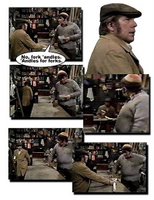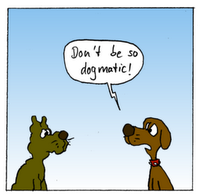The Entertainment Value of English



The English language is one of the richest languages on the planet; it is spoken by millions in hundreds of different countries, by scores of people as a second language, and by many as their first.
English is the language of William Shakespeare, James Joyce, Dylan Thomas, Ernest Hemingway and Neville Shute. It is the language of air traffic controllers, soil engineers, civil engineers and scientists.
But English is so much more than a language; it is a resource, a tool, a mine of information, and an endless source of humour. For English, unlike many languages like Chinese and Japanese, to name but two, admits punning – plays on words – conundrums – cryptic crossword puzzle clues and the like.
The English language is so malleable – not usually an adjective used to describe a language. And, to use some of that words synonyms, English is pliable, and adaptable; it is plastic – it can be moulded and kneaded into different shapes and sounds without fracture – without any rules being broken – except those framed in the confines of reason.
Lewis Carroll knew that, so did James Joyce and so do compilers of word games. Every day of our lives, we solve cryptic crosswords joyfully, enigmatically and completely, or scratch our heads at a hundred word games in magazines and newspapers.
The reasons why English is such a thing to be played with are many – some have academic names – but all can be explained in simple terms or by short and succinct demonstrations.
English words can be used in different parts of sentences – ‘walk’ is both a verb and a noun, so is ‘rain’, so is ‘play’, ‘run’, ‘jump’, and ‘push’. English words can have bits tacked on to them, front and/or back to change their meaning entirely.
Think about that common word ‘walk’. We have just said it can be a verb or a noun. It can also turn into ‘walkman’, catwalk, and ‘cakewalk’. It can be rhymed to confound – referred to as a’ ball of chalk’ in Cockney rhyming slang.
English words can sound the same but be spelled differently and have different meanings. A homograph is the name given to a word that is written in the same way but with different pronunciation and also meaning something completely different. We have ‘lead’ as in the expression ‘ you can lead a horse to water..’ or we can have that substance so common on church rooves and in some forms of petrol: ‘lead’; ‘plumbum’ to the Romans, hence its symbol in the Periodic Table of Elements – Pb – Lead.
Homonyms are words are written in the same way and sound alike, but which have different meanings. ‘Lie down’ ; don’t stand up – ‘don’t lie; tell the truth.
Homophones are words which sound alike, are written differently, but have different meanings: ‘no’ and ‘know’ are the most obvious examples here.
Leaving individual words, we have ambiguity caused by syllable boundaries being changed. Messrs Barker and Corbett, ‘The Two Ronnies’ were well known for this kind of verbal trickery. Their most famous comedy sketch involved a country bumpkin in a hardware store asking for ‘fork handles’/’four candles’ - the trick doesn’t work when it’s written down. Try saying the two and see how similar they are – the source of confusion and of mirth.
Strangely, words can derive from the same root but be used in different fields: rainfall is often torrential, but a torrent is as often of abuse as it is of water.
English is an idiomatic language – another source of confusion for the learner, and entertainment for the rest of us. Apart from the obvious ‘raining cats and dogs’ sort of stuff, English is choc full of pitfalls for the unwary.
Ridiculous approximations to words can leave us baffled or in stitches (which has nothing to do with deep cuts that need surgery).
Man in shop: What can I get you?
Customer: Pepper
Man: Red or green?
Customer: Writing!
Lastly, we have the irritation of having so many speaking different versions of our tongue. George Bernard Shaw or was it Alan Jay Learner gave us:
“The Scots and the Irish leave you close to tears.
There even are places where English completely disappears.
Well in America they haven’t used it for years.” Professor Higgins in ‘My Fair Lady’
All this makes it such a nightmare for learners, but such rich pastures for those of us who enjoy playing with words.
Robert Leslie Fielding

0 Comments:
Post a Comment
Subscribe to Post Comments [Atom]
<< Home